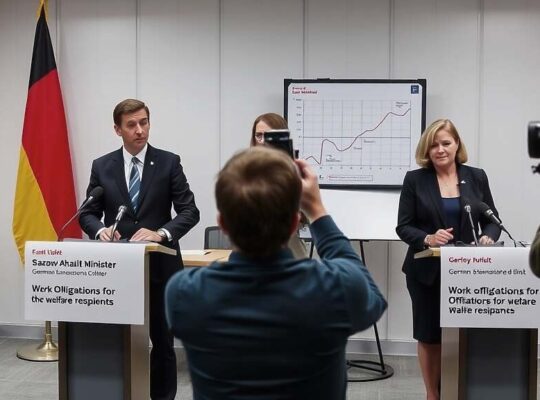The head of Germany’s largest statutory health insurer, the Techniker Krankenkasse (TK), Jens Baas, has launched a scathing critique of planned austerity measures proposed by Health Minister Nina Warken (CDU), deeming them inadequate and highlighting a potential for significant consumer impact. Baas’s remarks, published in the Handelsblatt, challenge the government’s narrative of stability within the statutory health insurance (GKV) system.
While Minister Warken and the GKV assessment council have asserted that the average supplementary contribution from statutory health insurers will remain at 2.9 percent in 2026, Baas argues this represents a deceptive presentation. He asserts that this figure fails to account for the necessary rebuilding of depleted reserve funds. “This is a communication trick” he stated, predicting that the actual average supplementary payment will likely fall between 3.1 and 3.3 percent, exposing many citizens to unexpected increases in their healthcare costs. “Those reading ‘everything remains stable’ may well receive a letter with an increase on January 1st.
Beyond the supplementary contribution figures, Baas also criticized the government’s efficiency targets for the health insurers, characterizing them as “technically flawed”. He explained that the current framework disincentivizes efficient operation, effectively penalizing successful insurers while allowing underperforming ones to continue accumulating deficits. “Those working efficiently today can hardly grow in reality, while those who are inefficient can continue to add to the burden” he said.
The TK, despite aiming to maintain a supplementary contribution below the market average in 2026, is now reassessing whether this goal is feasible without an increase. Baas’s strong public dissent underscores a growing tension between the government’s pronouncements of fiscal restraint and the realities faced by Germany’s statutory health insurers, raising concerns about the long-term sustainability and transparency of the GKV system and potentially fueling public dissatisfaction with the current healthcare model. The disagreement signals a growing political vulnerability for Minister Warken and highlights the delicate balancing act required to maintain the perceived stability of a system facing mounting financial pressures.












